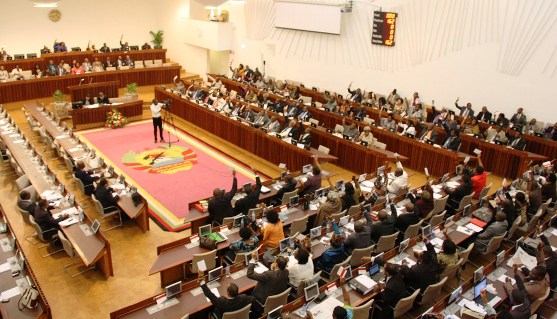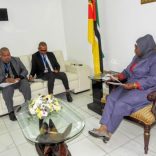Chapo–JD Vance meeting ushers in new phase for Mozambique–US relations
If Frelimo Rejects The Revision of Mozambique’s Constitution, It May Be The “Final Rupture,” Warns Renamo

In file Club of Mozambique / A view of the Mozambican parliament in session.
Renamo has warned that failure to approve its proposed revision of the Constitution, scheduled for debate today, “may be the beginning of a final rupture”.
The ruling party has indicated a probable no vote, suggesting the political and military crisis in Mozambique will drag on indefinitely.
The proposed revision focuses on Article 8 (on the unitary state); Article 160 (on the powers of the President within government ); Article 271 (about local government goals); and Article 272 (the categories of local authorities).
The amendments presented by Renamo as a possible solution to the deadlock obtaining since the general election of October 2014 are that provincial governors will be proposed by provincial parliaments from the approval of the new constitutional text; that they will in the interim be “proposed by the candidate with the most votes in the presidential elections of 15 October 2014 in the respective province “; that Article 271 on the objectives of local government shall substitute for the text “the participation of citizens in solving their own problems in their community and promoting local development,” by the wording “pursue the interests of residents in the territorial districts of the local authorities”; and add to Article 273 a new category of local authorities called the provincial municipality, whose territory will coincide with the provincial area of jurisdiction.
According to the main opposition party, whose leader Afonso Dhlakama has neither spoken nor been seen in public since the incidents of the 9th of October at his home in the city of Beira, this “project aims to provide the country with a juridical framework constitutionally suited to the new reality” and declares that “this is an issue that must be resolved urgently, through the partial revision in which terms we present the draft, because the country is experiencing a political and military crisis that cannot be sustained for much longer”.
However, these arguments do not seem to be enough to convince the party that has governed Mozambique since 1975 and whose parliamentary group, in the view of Margarida Talapa, speaking in the opening session, “maintains that Mozambique is a unitary and indivisible state” and therefore recommends to the Parliamentary Committee on Constitutional Affairs, Human Rights and Legality and the Committee on Public Administration and Local Government, the “rejection of this project of a partial revision of the Constitution” and proposes instead “a general review of the Constitution”.
Through its official publication, ”A Perdiz” (“The Partridge”), Renamo claims that “(…) any attempt to reject the document as a way of humiliating those who tender it will leave no room for doubt that the dialogue that Nyusi so frequently promises to be willing to hold with Renamo is nothing but lies and diversion”.
The A Perdiz editorial adds that the final decision of the Frelimo-dominated Parliament can either “restore the confidence that no longer exists among Mozambicans” or ”be the beginning of a final rupture”, warning that “approval or rejection will shape the course of events in the country”.












Leave a Reply
Be the First to Comment!
You must be logged in to post a comment.
You must be logged in to post a comment.